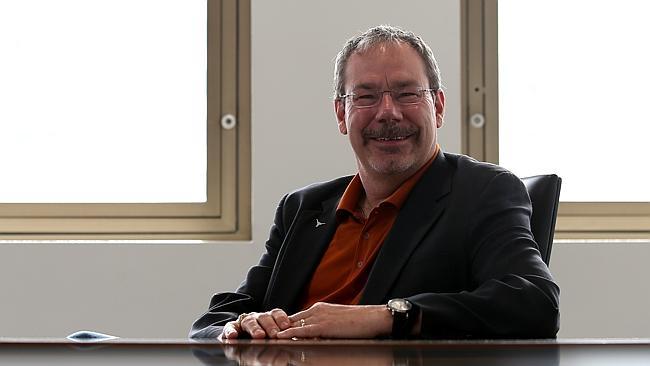Bigger than Texas: IC2 Institute’s Greg Pogue’s innovation challenge
The director of the University of Texas’s IC2 Institute has been discussing partnerships Austrlain universities.

The director of the University of Texas’s IC2 Institute, which specialises in innovation, the start-up economy and research, has been discussing partnerships with Flinders University and the University of Queensland.
Greg Pogue says Australia has a great strength in research but is weaker when it comes to developing businesses and creating industry partnerships between universities and the commercial world.
Pogue says Australia could build on its defence industry by using contracts as a lightning rod to attract talent and grow businesses, but small firms, including specialist component manufacturers, need to be encouraged to tackle the global market.
“There are fundamental ways to link these small and medium enterprises to business not only in Australia but around the world, so that you have a stronger basis for economy,” he says. “By doing these programs you draw the white-collar workers, you draw the normal entrepreneurs running very successful businesses here to help other entrepreneurs, even in the tech space, and funders to come here, so that you strengthen the economy by doing rather than by theorising.”
Pogue says promoting small-business growth, fostering innovation and creating a stronger start-up culture need support from educational institutions, government and investors.
He says there are three keys to setting up an innovative city, based on the successful model in Austin, Texas: having service providers who understand small business; ensuring there are mentors; and funding to allow people to develop ideas.
Spell it out
Recruitment firm Hays’ latest quarterly report has found employers looking to take on accountants are increasingly asking for good communication skills, not just bean counting.
Accountancy and finance regional director David Cawley says in professional accounting firms the increasing use of technology and decline in the value of compliance fee books have seen value-adding consulting services become more important. He says employers expect their accountants to liaise with other departments and translate numbers into non-technical terms.
“Be personable, build trust with other departments and learn how to explain the meaning behind the numbers in non-technical language,” Cawley says. “Be able to reason, and gain commercial acumen so that you can see accountancy in the wider business picture. This will help you liaise with colleagues effectively and add value.”
Apprentice support
The National Centre for Vocational Education and Training has found mentorship and a strong workplace culture are critical to retaining apprentices.
It studied eight small and large businesses with apprentice completion rates above 90 per cent, and found peer mentoring was critical to support the mental wellbeing of young workers as they moved from school to work.
Lead researcher John Buchanan, from the University of Sydney business school, says workplaces must embed systemic, informal support arrangements as part of everyday life.
“Where there are strong trade cultures in place, support for new apprentices comes not just from seasoned members of the trade — later-year apprentices can also play a very important role,” Buchanan says.
“A sense of sharing in the achievements of a respected past, and contributing to people having skills they can use in the future, was an integral feature of all workplaces studied.
“Such arrangements nurture mental wellbeing, not just quality skills development.”


